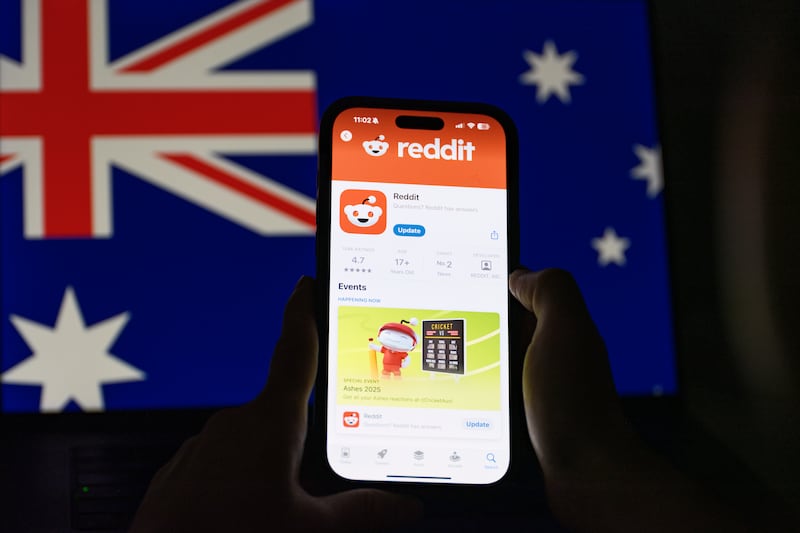“God knows this book isn’t for everyone” is not the traditional thing to say in an interview to promote your new novel, but then Lorrie Moore is not a traditional novelist.
Indeed, the acclaimed American writer has got to her fourth novel – previous ones were shortlisted for the Women’s Prize for Fiction and the PEN/Faulkner Award – without being readily considered a novelist at all. That’s because she’s best known for her short stories, which are usually funny, always moving, and capable of shattering a reader’s emotions in 20 pages. Back in 1999, her best-known collection of stories, Birds of America, won The Irish Times International Fiction Prize.
She’s speaking to The Irish Times today by Zoom, from Madison, Wisconsin, where she lives when she’s not teaching. Her name appears on her Zoom display as Marie L Moore (“This is what my mother did to me. I was named after both my grandmothers but then called Lorrie”), which makes me note that Marie Moore doesn’t half have an Irish ring to it.
“I’m not Irish!” Moore says, almost apologetically. “[But] I once said that to John Banville and he said, ‘Of course you’re Irish! There’s lots of Moores in Mayo.’ So who knows?”
RM Block
As the years pile on, you just have to go into denial, you have to always think, ‘Of course there’s another book!’ And maybe it will be your best book
— Lorrie Moore
Never mind. Moore is “not that fond” of doing interviews in person – “I’m more articulate in writing than I am in speaking” – but she is open and friendly in conversation. Her new novel is her first book of fiction since 2014, and her first novel since 2009. I comment that those of us who follow her work were beginning to wonder if there might not be another Lorrie Moore book. Did she ever think that?
“Oh, I can’t think that! As the years pile on, you just have to go into denial, you have to always think, ‘Of course there’s another book!’ And maybe it will be your best book. You have to think that your best work is still ahead of you, even if there’s not a lot of it.”
The novel is called I Am Homeless if This is Not My Home, which reminds me that Moore gives good title: the names of her stories and novels are often as idiosyncratic as the content. (A Gate at the Stairs, How to be the Other Woman, People Like That Are the Only People Here.) Where, I ask, did this title come from? Was it there all along or did she settle on it after the book was done?
“It was my working title, because I wanted to write about people who were uneasy in life itself. I thought it sounded like a blues song, and I kind of fell in love with the phrasing of it. And I did have to struggle with my publisher. My editor said, ‘You’ve got to shorten it, it’s too long!’ She said, ‘I let you have [Moore’s 1994 novel] Who Will Run the Frog Hospital, but I cannot –.’ And I said, ‘You did not let me have Who Will Run the Frog Hospital! I had to talk you into that.’ So I had to do a similar thing with this title.”
‘A story about grief’
“People who are uneasy in life itself” is one good summary of the novel. As is “a story about grief, and love, and death”, as Moore also describes it to me. The first of the central characters is Finn, a man whose life is focused on helping his brother Max, who is dying in a hospice. (“Not in a hospital but in a hospice – the place where one dies, when all hope and hospitals are done.”)
But then, living in proximity to death, Finn hears that his ex-girlfriend Lily has taken her own life and been buried peremptorily, and he goes off to see her grave. What he finds there is Lily, yes, but an undead Lily, a zombie Lily, who, it turns out, hasn’t quite finished with the world yet. This leads to a road trip with Lily and Finn, full of crosstalk, wit, sentiment and sadness. Well, this is a Lorrie Moore novel, after all, even if it’s a “very weird” one, as she puts it, although at least the eccentricity means that “the one thing I can tell you about this book is that it wasn’t written by AI”.
Some people start the book and are very confused. But confusion is also part of a legitimate response!
— Lorrie Moore
What got Moore started on I am Homeless… was the storyline that alternates with Finn, Max and Lily’s thread: a narrative from the 19th century in the form of letters written by the landlady of a boarding house, one of whose tenants may be John Wilkes Booth, the man who shot Abraham Lincoln.
“There are lots of connections between those two sections,” she says, “that you might not feel right away but ideally, you get to the end of the book and start to feel them more. Some people start the book and are very confused. But confusion is also part of a legitimate response!”
I think the novel’s appeal will be wider than Moore thinks. As we might expect from a writer who always makes every effort to give the reader pleasure on every page, there is lots of joy and humour to be found amid the grim-sounding subject matter. Is the dialogue as much fun to write as it is to read? “I love getting fictional characters talking to each other,” she agrees. “Maybe I’m a frustrated playwright or something.”
[ Delicious morsels: Lorrie Moore's collected essays reviewedOpens in new window ]
And what about the overwhelming focus on grief in the novel. Is this something that’s been on her mind lately?
“It was on my mind when I wrote this book. I had known too many people who had died, and I just thought, how? How can we accept any of this? We have to keep these people alive in our heads in a way in order to process our own grief. And so I thought, I’m going to write about characters who try to keep people alive.
“And of course the John Wilkes Booth thing is the whole country trying to keep something alive: the Confederacy. Which returns in 2016, with the election of Trump.”
Bad penny
Ah yes. The novel is set in 2016, with much talk of Trump and Clinton. I thought we were done with asking US novelists about him, but why is it that he seems to keep coming back like a bad penny?
Moore shakes her head sadly. “I don’t know. I mean we were all wrong last time – how can this gameshow host become president? He didn’t even seem to want it. He wasn’t really very interested in politics, he just wanted to have a show. And now his show is, ‘I was the president and now I’m going to be the president again.’”
[ Big Swiss by Jen Beagin: An incisive, funny whirlwind of a novelOpens in new window ]
In the book one character points out that in the 2016 election, the candidate who got the highest number of votes ended up losing. “It’s insane. We have a million different insane systems. The idea that as a country, we’re preaching democracy around the world and we don’t even have it ourselves, is such a bitter pill to swallow. It’s ludicrous.”
In this book, as in Moore’s fiction generally, the tragic and the comic are inseparably entwined. Is that how she sees life? “Well, isn’t that how everyone sees life? They’re both there for everyone to notice and take note of. I guess some people fear that if you have funny things, you’re not being serious. But of course funny things are very serious. And serious things can be funny.”
The other thing you’re doing when you teach creative writing [is] you’re helping create the future readers of the world
— Lorrie Moore
When I spoke to Moore, the English novelist Martin Amis had recently died. I ask her if she agrees with his observation that writers are “most alive when alone”.
“I recognise that. Yeah, I do. I had a friend who said something like, ‘If you take a picture of me when I’m not writing, you’re taking a picture of a zombie. Or a ghost.’ In other words, he was saying, ‘I’m not here. You’re taking a picture of nothing.’”
But Moore is not very solitary as writers go. She teaches creative writing to students at Vanderbilt University in Tennessee. Does that help her writing? “It does slow you down,” she says. “But in terms of being able to sit around with smart young people and talk about literature, it’s a very privileged kind of work. Also, the other thing you’re doing when you teach creative writing [is] you’re helping create the future readers of the world.” She concludes: “The more writers we have, the more readers we have. And that’s a good thing.”
I Am Homeless if This Is Not My Home is published by Faber & Faber on June 20th



















